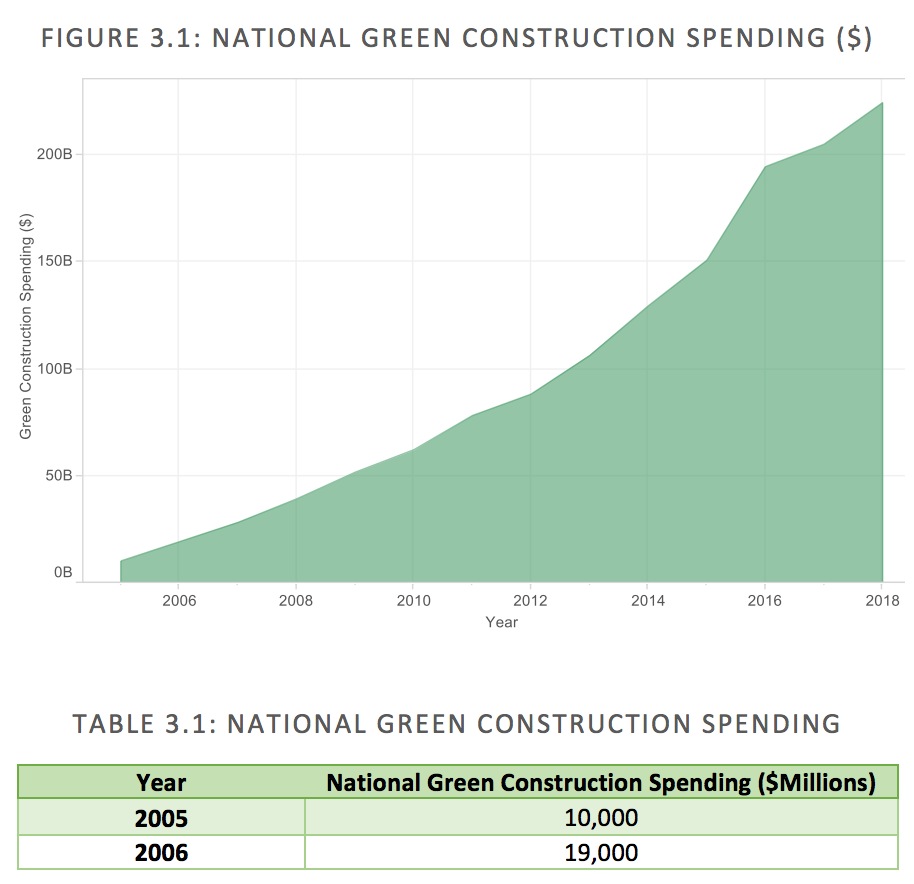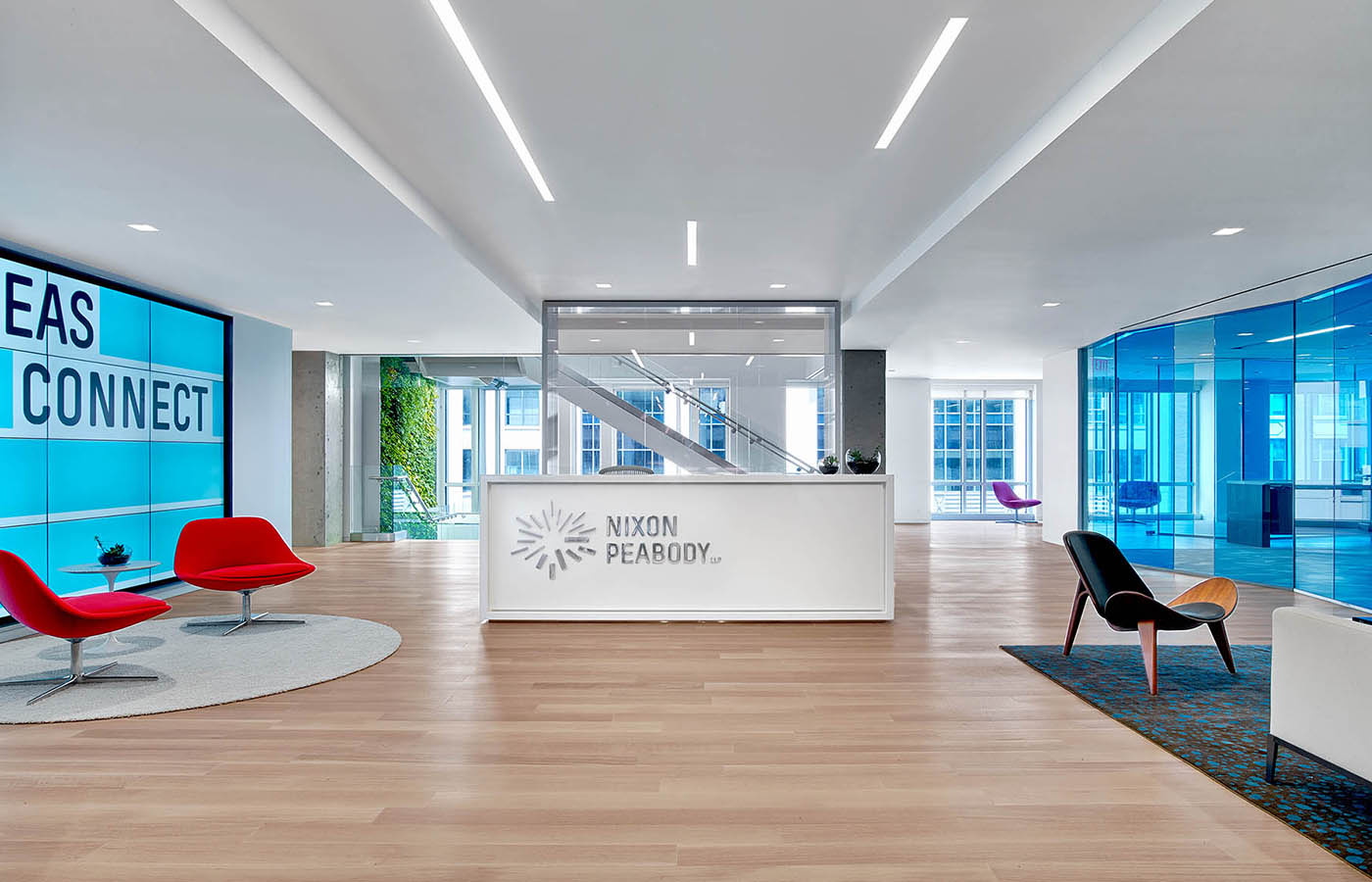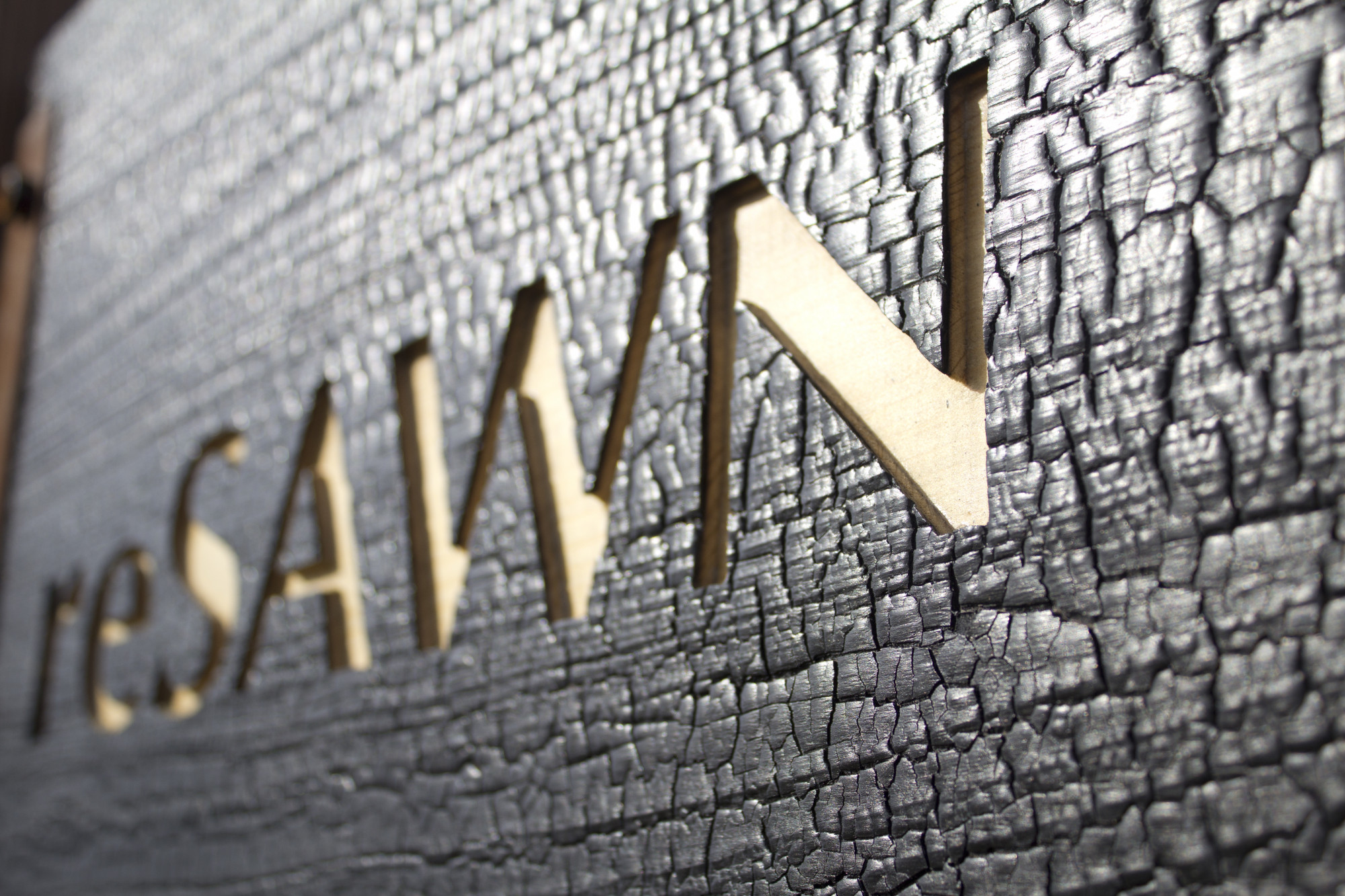Like most industries in the modern business landscape, the architectural and design industry is placing ever-increasing importance on sustainability. It simply isn’t enough to build or design a beautiful structure or space in 2017; it’s essential to consider the long lasting implications of every facet of the design process. With certifying bodies like the Forest Stewardship Council (FSC), LEED, Cradle2Cradle, Living Building Challenge, the WELL Building Standard, and numerous others, architects, designers, manufacturers, and builders are considering the well-being of building inhabitants and the conscious maintenance of natural resources with newfound diligence.
Sustainable Growth in the A/D Industry
In a 2015 study, the U.S. Green Building Council projected a 15.1% yearly growth of green construction spending with a monetary growth from $150.6 billion in 2015 to $224.4 billion in 2018. The primary cause can be traced back to government policies that have implemented stricter sustainable building regulations and standards. States like Maryland, Colorado, California, and Washington have created codes that require sustainable standards for state-funded building projects.
Additionally, pressure from the market and clients have led to private sector sustainability renewals where companies like REI, Apple, Nike, and Starbucks are committed to using renewable energy, constructing healthier buildings, and using sustainable building materials. In all, the architecture and design industry is focused on a wholistic approach to sustainability through every possible aspect from material manufacturing to end user health.
Certification Programs
With different areas of focus and varying levels of standards, a fair amount of new certification bodies have joined the sustainability cause as a way to ensure that architecture and design are positively contributing to the betterment of society. Specializing in the commercial and residential sectors, the certification standards range from net zero energy production to forest management:
LEED is perhaps the most established and well-known of the certification programs with stringent standards that only certify entire projects. In its fourth iteration, LEED v4 focuses primarily on four overarching areas: materials, performance based, smart grid, and water efficiency.
The USGBC designed LEED as a flexible, living standards that can be applied to any building in any phase of the building process. Unlike many other certifying boards, LEED does not certify individual materials, but rather allows those materials to contribute to LEED projects as LEED Credits.
The FSC is entirely about responsibly managed forests. Operating currently in more than 80 countries, the FSC originally began as a way to combat deforestation. Today, they focus on responsibly harvested forests as a way to extend trees’ natural carbon sequestration throughout it’s lifecycle.
Two certifications are offered, Chain of Custody and Forest Management. The Chain of Custody certification allows manufacturers to pass along the FSC certification to ensure that the entire manufacturing process is committed to responsibly forests. reSAWN TIMBER co. offers many products available as FSC certified.
The Living Building Challenge, part of the International Living Future Institute, offers an in-depth certification program keyed in on energy efficiency, water efficiency, and the use of healthy materials. Living Buildings are required to generate more energy than they use, designed to exist for more than 100 years, and to collect and treat water on site.
The standards are made up of “petals”–Place, Water, Energy, Health & Happiness, Materials, Equity, and Beauty–that each contain actionable, specific “imperatives.” The Living Building Challenge does not offer an explicit checklist, and instead, encourages design and build teams to think holistically and creatively.
reSAWN TIMBER co. & Sustainability
Aside from our ability to offer many of our products FSC certified and our numerous contributions to LEED certified projects, reSAWN is dedicated to manufacturing products that reach their peaks sustainably. From the species we offer to the finishes that make our products aesthetically pleasing, we know that we’re a crucial part of projects that contribute to a healthier world.
- Reclaimed Wood
Antique reclaimed Wood lets us connect with nature and human history in an unprecedented way. Long before Columbus founded the new world, the seedlings of the great North American forests were taking root. Left undisturbed for centuries, these seedlings were able to slowly grow into massive trees, basking in the ample pollution-free air and water of pre-industrial America. This slow growth and natural habitat is key to the unique beauty and strength of antique reclaimed wood. Slow growth produces trees with much tighter growth rings and consequently finer grain. It also produces significantly more heartwood, which is stronger and more durable than younger sapwood.
Our reclaimed lumber comes from a variety of sources throughout the Appalachian Region. Our suppliers source antique materials from old barns and properties that are being developed for other uses. We reclaim structural beams and timbers as well as flooring, sheathing and siding boards.
- CHARRED Accoya®
Accoya® wood is the result of decades of research and development that has brought together a long-established, extensively proven wood modification technique and leading-edge patented technology, acetylation, to create a high performance wood that’s ideal for outdoor use and challenging applications.
All our CHARRED Accoya® products are FSC certified. The charring process mixed with the increased durability from the acetylation process leads to longer lasting products and less material waste created. Accoya® wood has a 50-year warranty above ground level and a 25-year warranty at/below ground level.
- People & Place
It is rarely thought to be a contributing factor when sustainability is emphasized, but personal, mental, and emotional health directly measure the effectiveness of a sustainable building project. reSAWN was founded to use the power of business as a force for doing good.
We continually strive to create positive experiences for our employees and customers–experiences that nurture the heart, body, and soul. We actively seek out employees and suppliers who represent diversity in gender, race, ethnicity, religion, age, sexual orientation, disability, culture and background.
All RSTco. furniture is custom built and finished in our wood shop from locally sourced and sustainably harvested wood species. All of our shou sugi ban CHARRED products are made in our facility in Telford, PA. reSAWN uses domestic wood species whenever possible, including Cypress from the Southern US and domestic White Oak, Black Walnut, Red Oak & Ash as well as reclaimed woods from the US.



